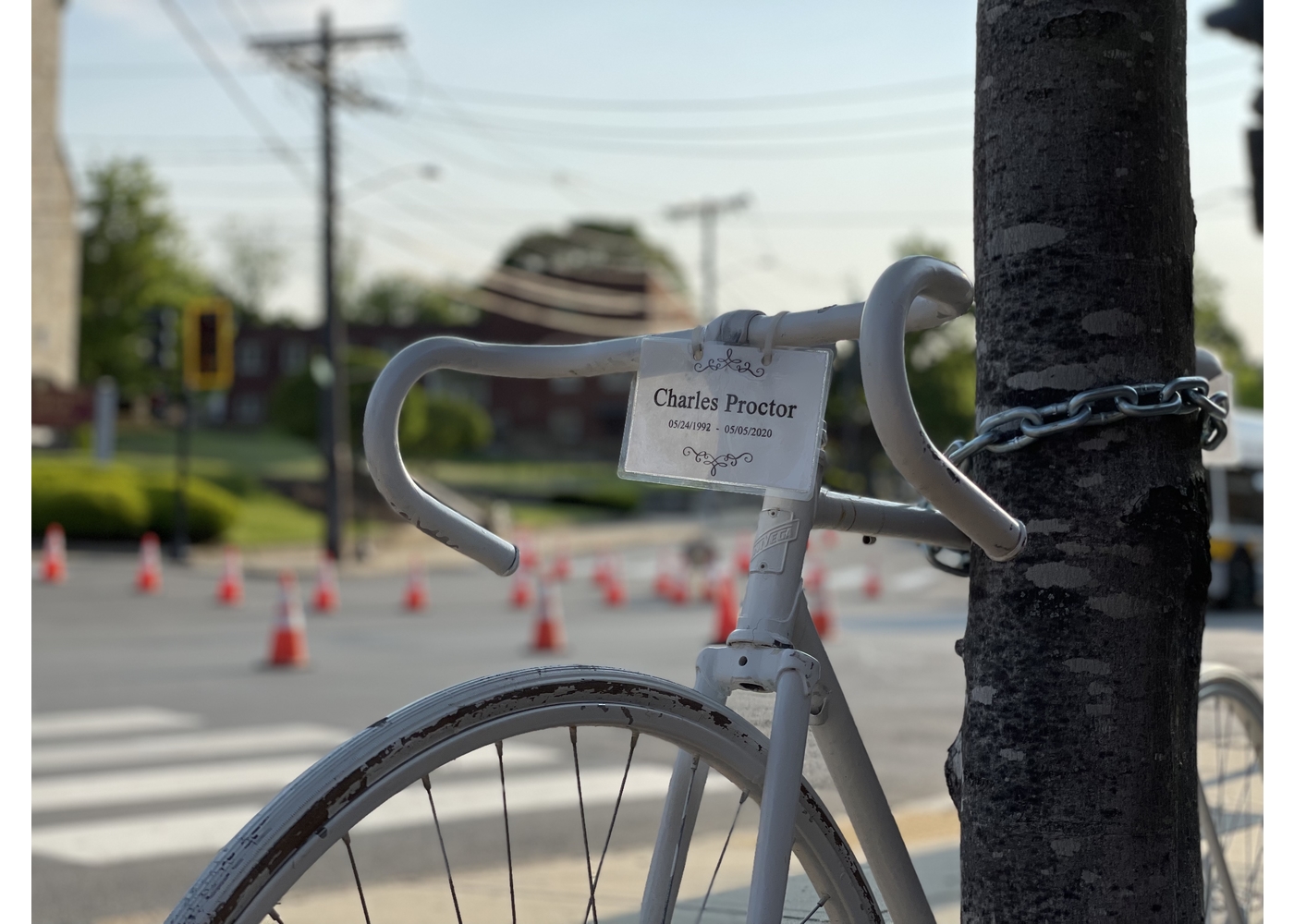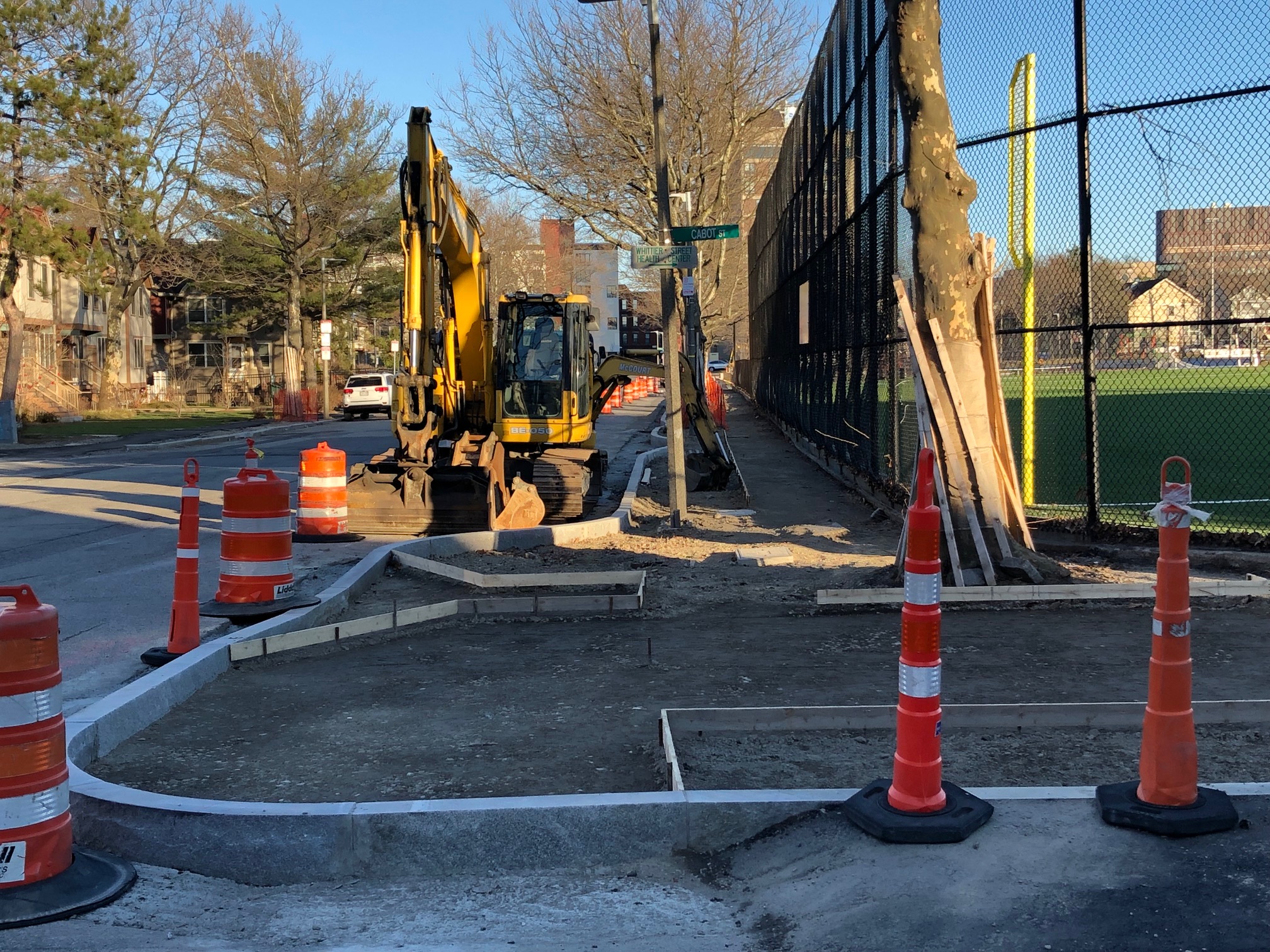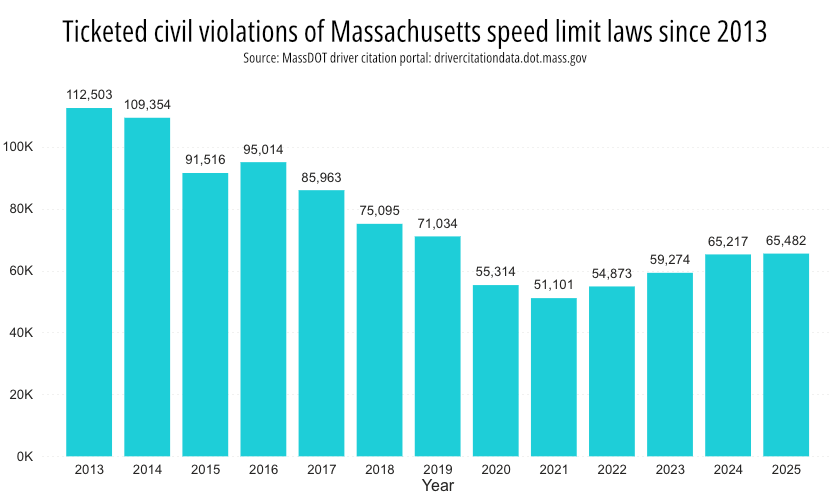On Monday, the Arlington Select Board rejected a committee’s recommendation to install new bike lanes and other safety measures at the intersection of Massachusetts Avenue and Appleton Street, where drivers killed Charlie Proctor in 2020 and have injured several other people since, in favor of a watered-down plan that prioritizes on-street parking.
In March of 2021, in response to a series of crashes at the intersection, including a May 2020 crash that killed Somerville resident Charlie Proctor, Arlington’s town government convened a special committee to review and recommend near-term safety improvements with consultants from Green International, an engineering firm.
In July, after testing various alternatives in the field and numerous public meetings, Green International proposed two alternatives: one that preserved on-street parking, and another with buffered bicycle lanes. The committee endorsed the bike lane alternative with an 8-3 vote.
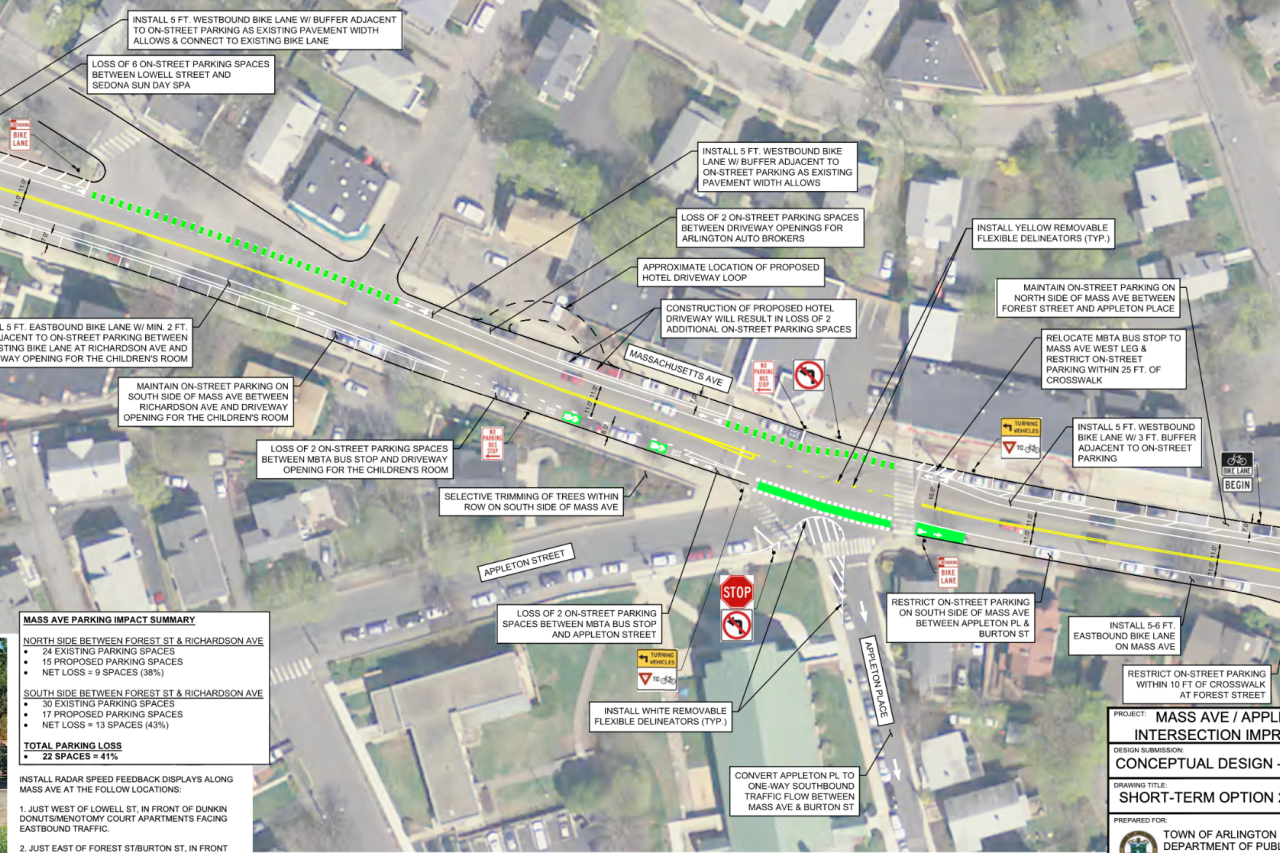
After the committee endorsed the bike lane concept, opponents, who were chiefly worried about losing on-street parking, started to draft petitions, write letters, and complain that the committee’s process was unfair.
A few days before the Select Board vote, Daniel Amstutz, on the behalf of Arlington’s planning department, wrote a detailed report on the background of the committee process, and referenced and explained studies showing how shared-lane markings are not as safe as bike lanes.
However, the Arlington Town Manager, Adam Chapdelaine, recommended the board approve “option one” (without bike lanes) for now, and conduct a parking study of the area this October. Then, the board could revisit the bike lanes in the spring.
At Monday’s Select Board meeting, after a presentation from Green International, several friends and family members of Charlie Proctor asked the Select Board to prioritize safety and approve the bike lane.
Another Arlington resident, Leonard Greenberg, testified about being hit at the same intersection a month after Charlie Proctor was killed. He had heard of the crash with Charlie, was riding with unusual caution, and he still got hit. His wife, Lynn, noted that many drivers were already ignoring the town’s left turn ban at the intersection.
Linda Epstein, a member of the design committee and a friend of the Proctor family, expressed disappointment that the Select Board was even considering the shared lane alternative, in contradiction of the committee’s recommendations.
“I feel that the time and effort that the committee put in to carefully considering the safety of cyclists and pedestrians was once again overruled in favor of the automobile,” said Epstein.
But several abutters to the intersection also testified to complain about the potential loss of parking.
After about an hour of public comment ended, Select Board member John Hurd proposed a motion to pass alternative one, the shared-lane alternative, claiming that “businesses need parking.”
Select Board member Lenard Diggins, who also chairs the Boston Region Metropolitan Planning Organization's Regional Transportation Advisory Council, proposed an alternative motion to implement the bike lanes, which he expressed support for as the safer street design.
Select Board member Eric Helmuth seconded that motion, observing that, in the long run, Arlington would need to remove those parking spaces to put in bicycle lanes in order to comply with new state engineering guidelines.
Helmuth also remarked that Arlington has already completed all of its easy-to-implement bike lanes on wide streets, and would need to begin sacrificing parking spaces in order to complete its bike network.
But the motion to support the bike lane design ultimately failed, with opposition from Hurd and Select Board member Diane Mahon, who suggested that she might reconsider the bike lane alternative after the town conducts a parking study.
The board then took up the motion to approve the shared-lane alternative, which passed unanimously.
The town governance system in New England is so broken. The select board of @arlingtonmagov just rejected bike lanes that a design review com. approved 8-3 on a block of Mass Ave where my co-worker was killed and numerous other people have been struck over the years. Insanity.
— Tim Lawrence (@datadyne007) September 14, 2021
Ironically, the day after the Arlington Select Board's meeting, the neighboring City of Cambridge announced that it would move forward this fall with a plan to remove on-street parking on a longer section of Massachusetts Avenue just across from the Arlington town line, about 2.5 miles away.
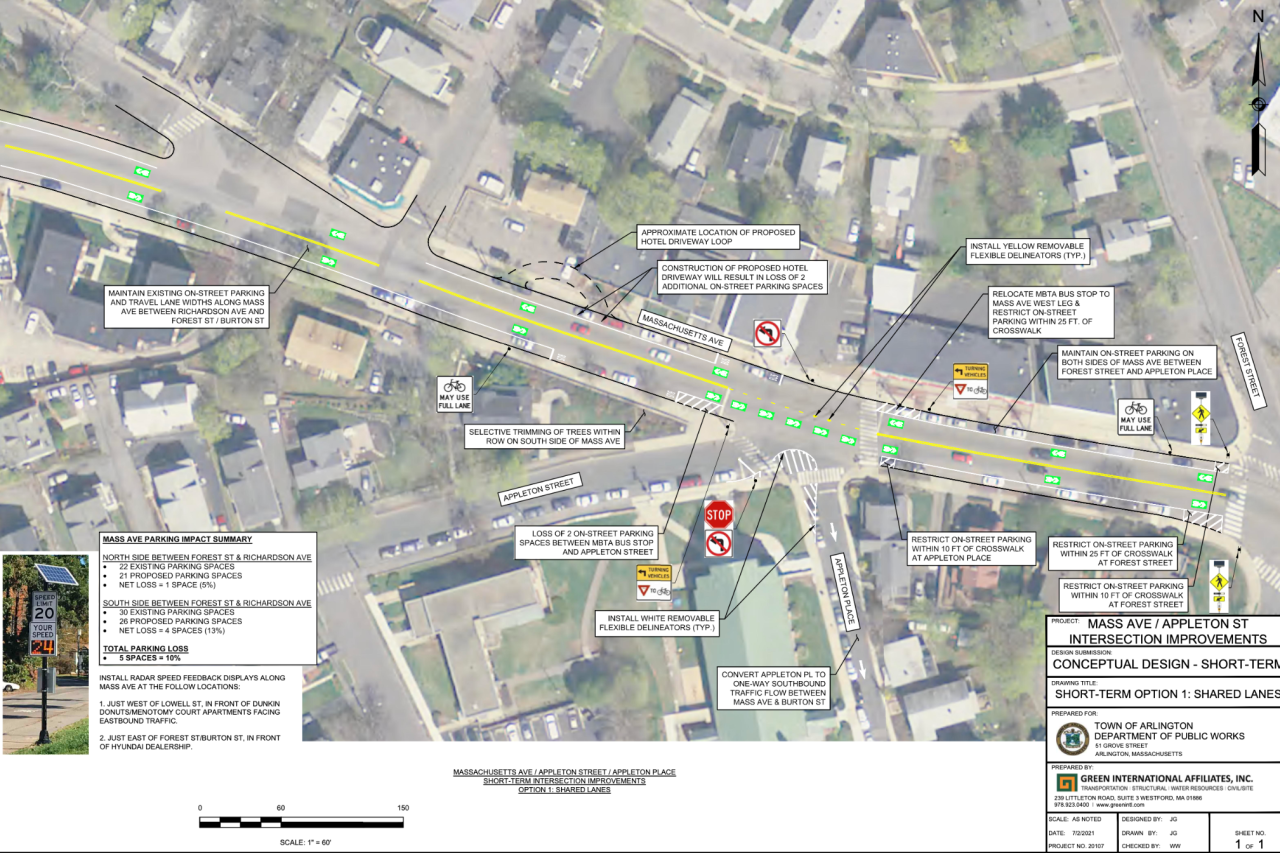
The town's adopted shared lane alternative for the Mass. Ave. and Appleton intersection will still offer some modest safety benefits. It will create a large painted curb extension on the south side of Massachusetts Avenue, between Appleton Street and Appleton Place, and new green shared lane markings going through the intersection could make drivers more aware of cyclists on the corridor.
Town officials say that the project can be implemented quickly with paint and flexible-post bollards, and installation should be complete by November 1st, 2021.
Watch the Arlington Select Board meeting here:
Select Board Meeting - September 13, 2021
This story was corrected on Monday, Sept. 20, to correct Lenard Diggins's role at the Boston Region Metropolitan Planning Organization (MPO). A previous version had incorrectly stated that Diggins was an employee of the Boston Region MPO; in fact, Diggins is the Chair of the MPOS's Regional Transportation Advisory Council, an independent body that brings public viewpoints and advice on transportation planning to the MPO, and has a voting seat on the MPO's board.
